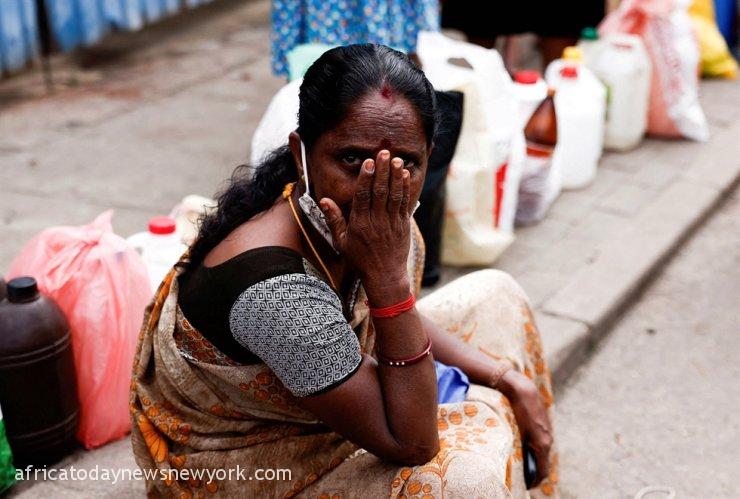Troubled Sri Lanka on Monday closed schools and halted non-essential government services, as they began a two-week shutdown to conserve fast-depleting fuel reserves as the IMF opened talks with Colombo on a possible bailout.
The 22-million-strong country is in the midst of its worst economic crisis in decades, having ran out of foreign cash to pay for even the most basic imports such as food, fuel, and medications.
As part of the government’s effort to limit commuting and preserve precious gasoline and diesel, schools were closed on Monday and governmental offices operated with skeleton staffing.
Sri Lanka is experiencing record-high inflation and long power outages, which have fueled months of — at times violent — rallies asking for President Gotabaya Rajapaksa to resign.
Read Also: Rising Oil Price Would Cause High Inflation, IMF Warns
Thousands of students marched through the streets of Colombo on Monday chanting “Gota go home” in reference to the president, who they accuse of corruption and mismanagement.
‘The time for Gotabaya to bow down with dignity is long gone,” student leader Wasantha Mudalige told reporters. “Now we have to chase him out.’
Police arrested 21 student activists who blocked all gates to the presidential secretariat building while declaring Monday, Rajapaksa’s 73rd birthday, a “day of mourning” for the nation.
Officers said the students had blocked Sri Lanka’s finance ministry secretary from attending a key meeting with officials from the International Monetary Fund.
But the office of Prime Minister Ranil Wickremesinghe said talks with a visiting IMF delegation, the first in-person discussions since Sri Lanka asked for a bailout in April, went ahead as planned.
Both sides said the talks would continue until the end of the month.
China owns more than 10 percent of Sri Lanka’s external debt and has invested heavily in infrastructure across the strategically located island, which is positioned along the main east-west international shipping lane.
The United Nations last week launched an emergency response effort to feed thousands of pregnant women facing food shortages in Sri Lanka.
Four out of five people in the country have started skipping meals as they cannot afford high food prices, the UN has said. It warned of a looming “dire humanitarian crisis” with millions in need of aid.

